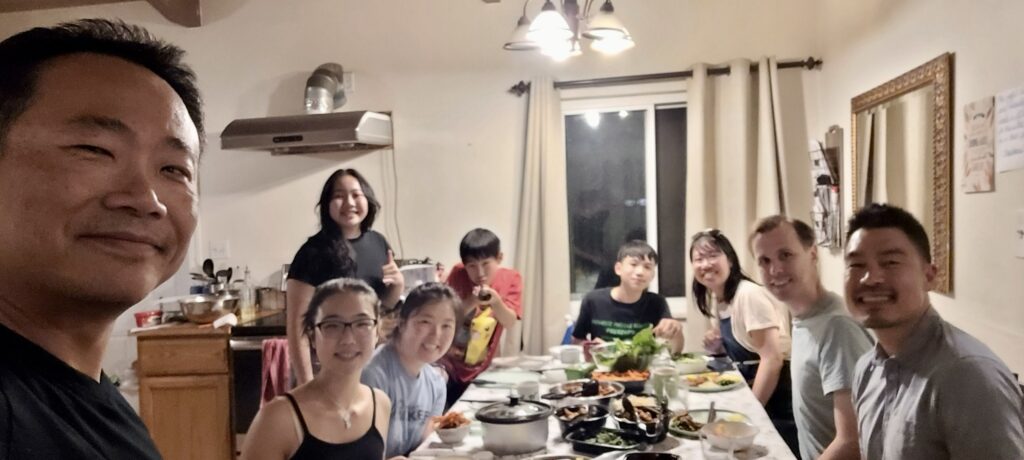How to have conversations
The older I get, the more baffled I am by how bad people can be at having normal conversations. You would think it comes naturally to people – two or more humans in the same room, exchanging words, ideas, and laughter – but apparently not. Too often, people mistake “talking” for “connecting,” and the difference is huge.
About a month ago I was invited to dinner by my longtime friend John, who I met at church when he was still single. Now John and his wife Angela have five kids – which occasionally makes me question what I’m doing with my own life – and this was my first time sharing a meal in their home with the kids. Another couple from church joined as well.
Dinner was delicious, but the highlight wasn’t the food. It was the chance to reconnect with John and Angela, reminisce about their proposal and wedding, and get to know their kids. Later that night, I texted them both to thank them for dinner.
John replied,
Ted, your attention and inclusion to the youth in discussion last night was very impressive. Not a lot of adults are good at that. We enjoyed your company and miss your friendship. The pleasure was ours, my friend.
While I was grateful for his response, I was genuinely surprised and a little perplexed. To me, all I had done was the obvious thing – when you share a meal with a group of people, involve everyone in the conversation. Isn’t that common sense?
Apparently not.
A few weeks later, I was invited to another home-cooked dinner, this time by my friend Luke. He had steaks sizzling on the grill and a few simple sides ready — roasted potatoes and a big green salad. He’d also invited two others: Jeff, who I already knew, and Sam, who was meeting both of us for the first time.
Sam was a character, and full of interesting stories and quotes. The problem? He mostly spoke to Luke.
Halfway through the meal, Sam launched into stories only Luke could connect with – inside jokes, mutual acquaintances, experiences that left Jeff and me sitting there with nothing to add. We weren’t part of the conversation anymore, just bystanders nodding politely.
That experience reminded me that good conversation isn’t automatic. It’s a skill. And like all skills, it requires thought, practice, and intentionality.
So what makes a good conversationalist?
First, it’s about inclusion. Notice who hasn’t spoken in a while and ask them a question. Address them by name and pull them in. Even something simple like, “Jeff, how did you and Luke first meet?” makes a difference.
Second, it’s about curiosity. The best conversationalists aren’t performers; they’re explorers. They don’t dominate the stage – they spark curiosity in others and invite them to contribute. They ask thoughtful open-ended questions, and occasionally spark spirited debate (my preferred modus operandi).
Finally, it’s about listening well. The other day I called an ex-coworker I hadn’t chatted with for a long time to catch up. Terry and I will always be friends because we had been through a tough season at work together, but she also has a habit of talking your ear off and not letting you get in a word edgewise. This time, though, I finally interrupted, saying, “Okay Terry, it’s time for me to talk now. You need to listen and let me talk. I also want you to listen better with your other friends, because you don’t want to be known as the person who can’t stop talking.”
She laughed and took it in stride, and to her credit, listened while I spoke.
None of this is complicated, but it’s rarer than it should be. Maybe because many of us (not me, of course) would rather talk than make space – or because it requires putting others ahead of yourself. Whatever the reason, when you learn to include, ask questions, and really listen, you’ll notice something almost magical: people remember how you made them feel heard. And that’s the kind of memory that lingers long after the plates are cleared.
So the next time you sit down for dinner — or pick up the phone — remember: you’re not just trading words. You’re practicing connection.

*Names and details may or may not have been changed to protect the guilty
Ted, thanks for your courage for speaking out your thoughts, especially right after this horrible event. It's been a a…